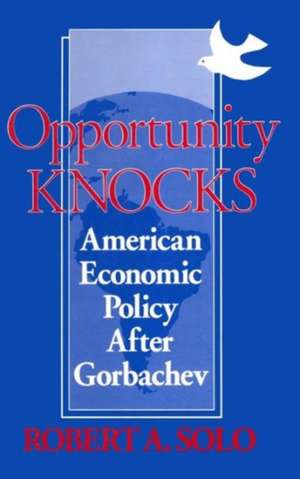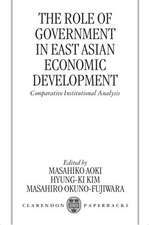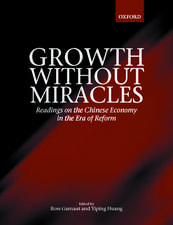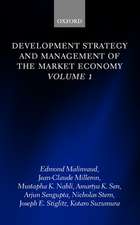Opportunity Knocks: American Economic Policy After Gorbachev
Autor Robert A. Soloen Limba Engleză Hardback – 31 aug 1991
Preț: 1000.27 lei
Preț vechi: 1219.84 lei
-18% Nou
Puncte Express: 1500
Preț estimativ în valută:
191.45€ • 199.12$ • 160.44£
191.45€ • 199.12$ • 160.44£
Carte tipărită la comandă
Livrare economică 14-28 martie
Preluare comenzi: 021 569.72.76
Specificații
ISBN-13: 9780873327749
ISBN-10: 0873327748
Pagini: 216
Dimensiuni: 156 x 234 x 26 mm
Greutate: 0.45 kg
Ediția:New.
Editura: Taylor & Francis
Colecția Routledge
Locul publicării:Oxford, United Kingdom
ISBN-10: 0873327748
Pagini: 216
Dimensiuni: 156 x 234 x 26 mm
Greutate: 0.45 kg
Ediția:New.
Editura: Taylor & Francis
Colecția Routledge
Locul publicării:Oxford, United Kingdom
Cuprins
Part 1 How Can We Have Full Employment and Price Stability?; Chapter 1 Policy Revisited; Chapter 2 Questions; Chapter 3 Answers; Part 2 The Question of Political Competence: MITI and AIM; Chapter 4 MITI and the Instrumentality of Economic Reform; Chapter 5 AIM; Part 3 How Can We Regain Technological Preeminence and Accelerate the Rise of American Industrial Productivity?; Chapter 6 Losing the Race; Chapter 7 Some Elements of the System; Chapter 8 Decline of the American System; Chapter 9 Policies; Chapter 10 Crisis; Part 4 How Can We Achieve Balanced International Trade?; Chapter 11 The Benefits of Trade; Chapter 12 The Continuum of Imbalance; Chapter 13 Finding Balance; Chapter 14 The International Flight of Cash Balances; Part 5 Is There a Preferred Alternative to a World System of International Free Trade?; Chapter 15 Options and Choices; Chapter 16 Comparison and Contrast; Chapter 17 Policy Implications; Part 6 What Policy Can Confront the Depletion and Ultimate Exhaustion of a Critical Natural Resource?; Chapter 18 Perceptions; Chapter 19 Problems and Policies; Chapter 20 Survival;
Descriere
Primarily concerned with how the US government can outwit its former allies in the rush to exploit their former common enemy. Considers the US sluggishness in technological innovation, flaws in education and labor management, the dangers of free trade, and resource depletion. Annotation copyright Bo













